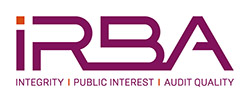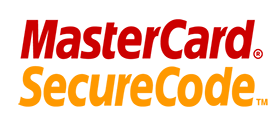IRBA beefs up sanctions and will pursue amendments to the Act
|
Johannesburg, Thursday, December 14, 2017 - The Independent Regulatory Board for Auditors (IRBA) announced today that its board recently took a decision to change its approach to sanctions and penalties to bring the IRBA sanctions in line with local and international regulators. There are over 4000 registered auditors in South Africa. While many auditors comply with the required standards, there are some who fail to deliver at the expected audit quality level. The board of the IRBA has acknowledged that in order for confidence in the broader profession to be maintained, the level of the sanctions for improper conduct must be better aligned to the nature of the non-compliance. The IRBA enforces compliance with the professional standards and code of conduct through administering sanctions which act as an effective deterrent to future improper conduct. Appropriate sanctions will promote public confidence in the regulation of the audit profession and the way in which the IRBA deals with auditors who fail to deliver audit quality. Consequently, the board has requested that changes to the Auditing Profession Act (26 of 2005) (The Act) must be pursued to align penalities to the nature of the misconduct, and to strengthen the IRBA’s powers to do so. Says Bernard Agulhas, chief executive officer of the IRBA: “There have been too many recent examples of improper conduct by auditors to continue to believe that it is ‘business as usual’. The professional standards and code of conduct are not only there to protect the public, but also the auditor. These standards and codes uphold the quality of audit services, which ultimately builds confidence in our financial markets. What is the use of having standards if those who fail to comply cannot be held accountable? And what is the use if those that fail to comply create their own practices and use that as an excuse not to comply? “From our own government and international audit and financial regulators to global audit regulatory bodies such as the International Forum of Independent Audit Regulators (IFIAR), there is a growing interest to see how South Africa will respond to the current crises we face in our accounting and auditing environment. The board has tasked its disciplinary committees with the immediate implementation of a more effective approach which could include combinations of permissible penalties rather than merely imposing a fine.” The changes to the sanctions approach will also align sanctions to the degree or nature of improper conduct. Some of the recommendations require amendments to the Act. Those amendments will be effective for transgressions that occur from the date of the amended Act. Says Agulhas: “It is critical that the IRBA prioritises public interest audit investigations where it is in the interest of the public to reach conclusions sooner rather than later. “The further amendments address a concern raised recently in parliament regarding the inadequate level of monetary sanctions. The link to the Adjustment of Fines Act will be removed and Section 51(3)(a)(ii) will be amended to allow an imposition of a monetary fine not exceeding the amount prescribed by the Board from time to time.” The Standing Committee on Finance had indicated in parliament that it would support the IRBA in its efforts to change the Act. Sanctions which can be enforced with immediate effect are
Says Agulhas: “The Act allows the publication of specific findings and names to be at the discretion of the disciplinary committee. However, in practice, the sanctions have mostly been applied by the committees with publication only in general terms. The board believes that in the changed environment this practice is no longer tenable and the committees must apply the new measures as an effective way to drive positive behaviour change.” Ends More about the IRBA: The IRBA is a public protection statutory body established to protect the financial interests of the public by ensuring registered auditors and their firms deliver services of the highest quality. It upholds audit firm independence to ensure that audit quality is such that it enhances the accuracy and credibility of financial performance reporting. In this way, the IRBA has an important role to play in building the reputation of South Africa as an investment market for both local and global investors and driving economic growth for the country. The IRBA also registers suitably qualified accountants as auditors, who must adhere to the highest ethics standards, and promotes the auditing profession through the effective regulation of assurance conducted in accordance with internationally recognised standards and processes.
|





